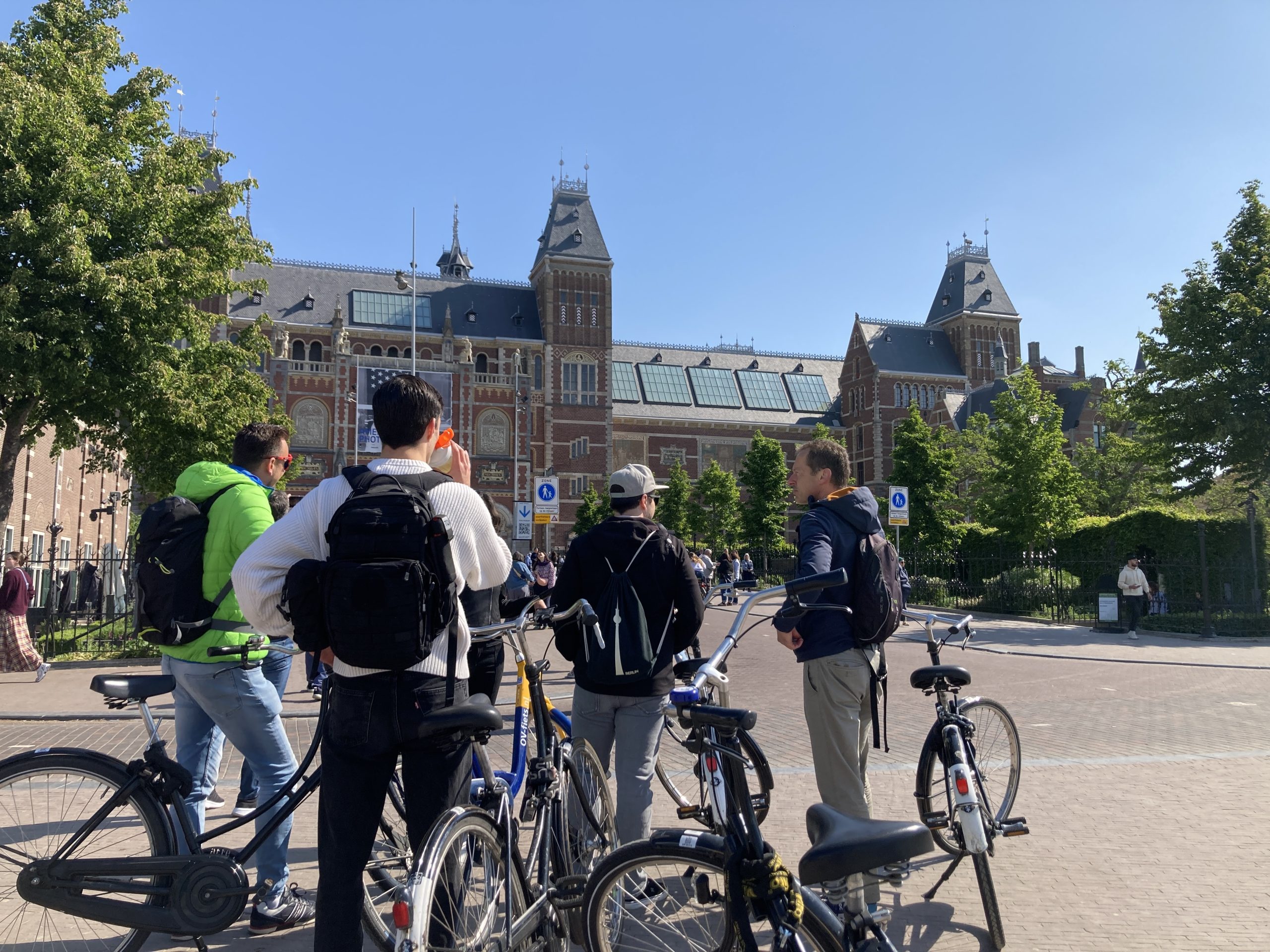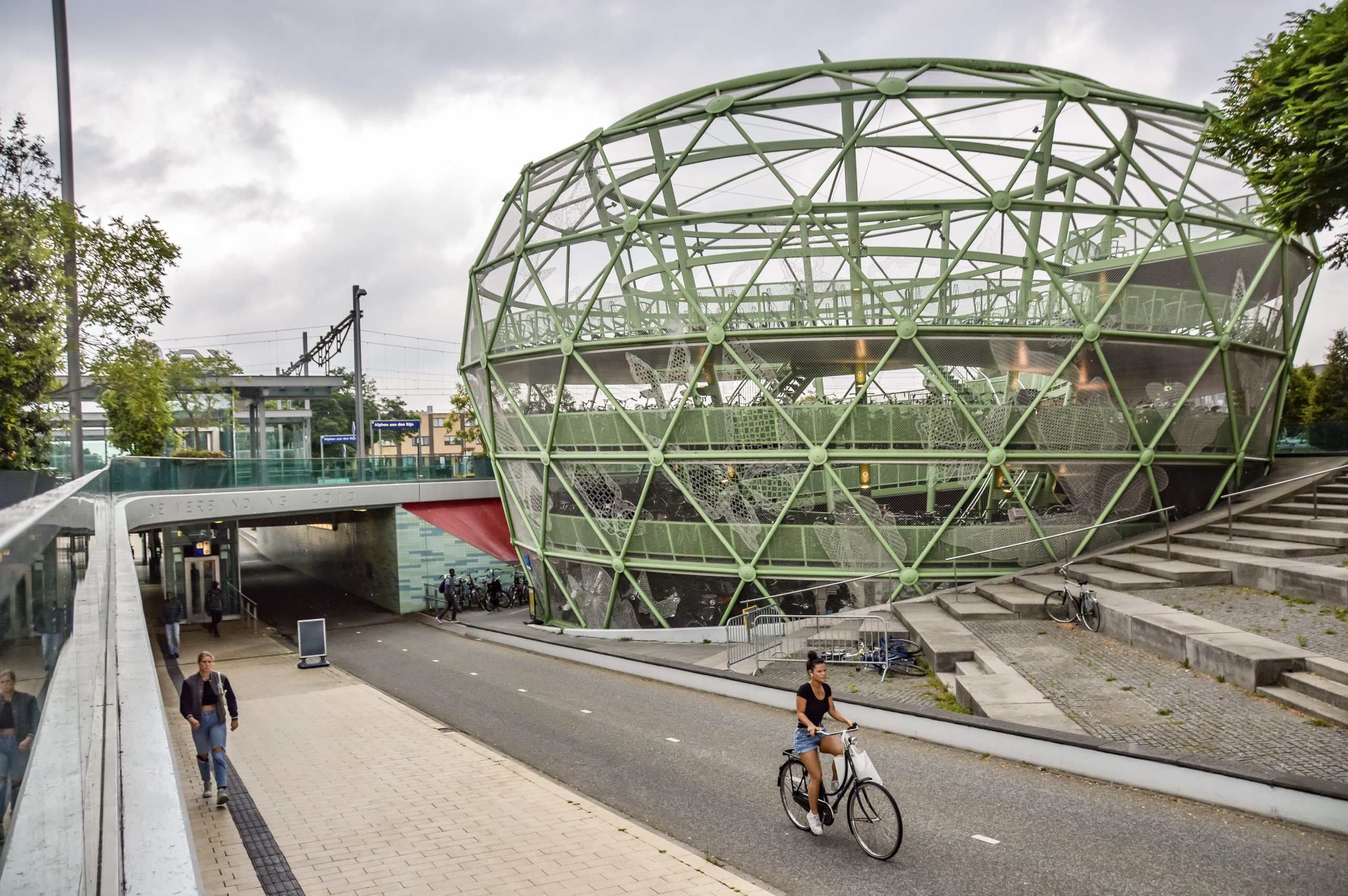Study Visit from Cantonal Traffic Police of St. Gallen, Switzerland
16 May 2025From 7th to 8th May 2025, the Dutch Cycling Embassy organised a study visit for representatives of the Cantonal Police of St. Gallen, Switzerland. The visit aimed to provide insights into best practices for integrating cycling into infrastructure planning, with a particular emphasis on safety. The program featured expert-led discussions, presentations, and hands-on exploration of cycling infrastructure in three Dutch cities, Utrecht, Amsterdam, and The Hague.
Participants began their journey with an introduction by the Dutch Cycling Embassy, setting the stage for discussions on cycling infrastructure, regulation, and safety. Tim Adema of Roelofs then explored how infrastructure can be designed to maximise safety. His presentation was complemented by insights from police academy lecturer and superintendent Dirk-Jan de Groot, who drew on his extensive experience in police training and international collaboration to highlight the importance of flexibility, human-centered design, and effective planning in creating safe traffic environments. Following this, Heike Martensen from SWOV, the Institute for Traffic Safety Research, examined the nuances of sustainable and subjective safety, supported by the latest research findings. The day concluded with a cycling tour through Utrecht, allowing participants to experience firsthand how Dutch cycling infrastructure functions in practice.
On the second day, discussions shifted toward the implementation of infrastructure and enforcement strategies for cycling safety. The group convened at Amsterdam Zuid station, where experts reviewed key takeaways from the previous day and outlined the objectives for the remainder of the visit. The morning session featured perspectives from Elke Schimmel of november:city and a local police officer, who discussed urban safety measures and their impact on cycling, as well as local cycling culture and challenges in enforcement. Later in the day, Robert de Groot, Gilbert Gordijn, and René Willemse from The Hague’s regional traffic police team, along with the police attaché of Switzerland at Europol, provided insights into laws and regulations, best practices in design, policy frameworks, and cooperation with municipalities.
Throughout the day, participants took part in guided cycling tours, first in Amsterdam and later in The Hague. These immersive experiences allowed them to observe how cycling integrates seamlessly into urban transport systems, emphasising both infrastructure and enforcement mechanisms. The study visit provided valuable insights, offering participants a deeper understanding and practical knowledge relevant to their work to support future developments in cycling safety and mobility planning in St. Gallen. By blending research, hands-on learning, and cross-border collaboration, the program reinforced the importance of well-designed cycling infrastructure and the role of enforcement in ensuring safe and effective mobility solutions.


